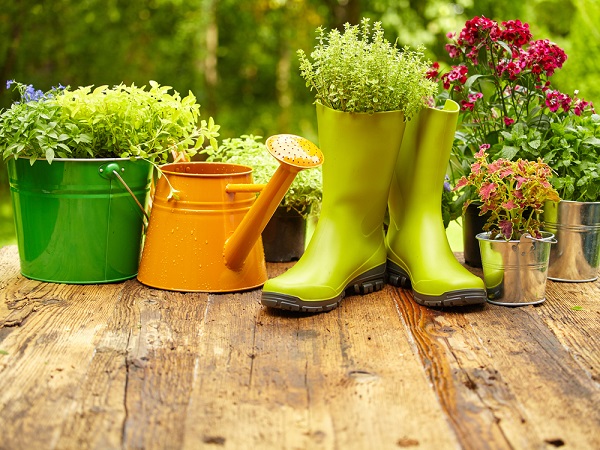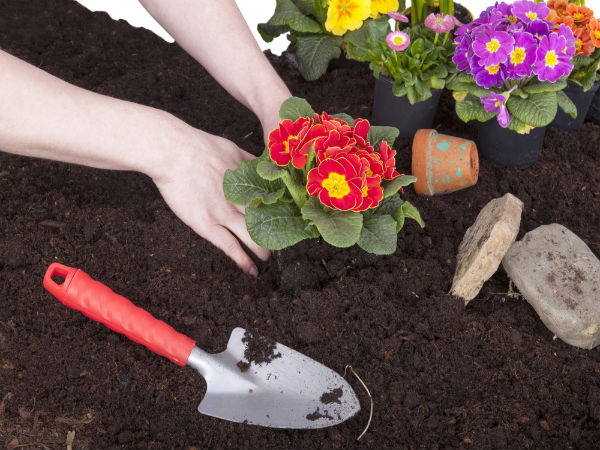Just In
- 30 min ago

- 2 hrs ago

- 10 hrs ago

- 10 hrs ago

Don't Miss
- News
 Odisha Boat Tragedy: Four Dead, Search Continues For Missing Passengers
Odisha Boat Tragedy: Four Dead, Search Continues For Missing Passengers - Movies
 Paarijatha Parvam Full Movie Leaked Online In HD For Free Download Hours After Its Theatrical Release
Paarijatha Parvam Full Movie Leaked Online In HD For Free Download Hours After Its Theatrical Release - Technology
 itel S24 With 108MP AI Dual Camera India Launch Confirmed; Amazon Microsite Goes Live
itel S24 With 108MP AI Dual Camera India Launch Confirmed; Amazon Microsite Goes Live - Finance
 Daily Relative Strength Index RSI In A Bullish Mode of This Pharma Stock; Buy For TP Rs 635-685
Daily Relative Strength Index RSI In A Bullish Mode of This Pharma Stock; Buy For TP Rs 635-685 - Sports
 RCB Green Jersey Match: Record And Stats Ahead of KKR Meeting in IPL 2024
RCB Green Jersey Match: Record And Stats Ahead of KKR Meeting in IPL 2024 - Automobiles
 Mahindra XUV 3XO SUV – Everything We Know So Far
Mahindra XUV 3XO SUV – Everything We Know So Far - Education
 Exam Pressure Does Not Exist; Studying Punctually is Crucial; Says Aditi, the PSEB 2024 Topper
Exam Pressure Does Not Exist; Studying Punctually is Crucial; Says Aditi, the PSEB 2024 Topper - Travel
 Journey From Delhi To Ooty: Top Transport Options And Attractions
Journey From Delhi To Ooty: Top Transport Options And Attractions
How To Prepare Your Own Compost At Home
In a modern city set up, the closest you can be to nature is in your very own garden. If you are the one whose garden is more important than the actual house and you maintain quite an impressive veggie patch in your garden, then this article is definitely for you.
With all the buzz surrounding organic farming, you must wonder how organic compost can be helpful to keep your plants lively and healthy. Organic products are also said to greatly benefit human health as well. But are you aware of what exactly is organic farming?

Organic farming is where the produce is grown through natural methods, without the use of chemical fertilizers and pesticides. This leaves you wondering how to provide the growing plants with all the essential nutrients that it requires. Well, the source of their health is freely provided by nature itself in the form of compost.
Organic compost is said to be the best fertiliser for plants as it provides the right kind of nutrients required for their growth.
Below are a few benefits of using organic compost instead of fertilizers laden with chemicals -
1) It improves soil structure and helps it holds just the right amount of moisture for the plants to grow.
2) It helps control weed growth and ensures all the nutrients of the soil reach the plant.
3) Organic compost contains the right amount of nitrates to improve soil fertility.
But store-bought compost may not be that organic after all, as advertised. The best way to ensure that you give your plants pure organic compost is to make some yourself. That's right!
Making compost is a very easy process, although a bit time taking. But all the waiting will surely be worth in the long run. Also, it only requires your kitchen and garden scraps to be converted into a rich fertiliser for your plants.

Here is a step by step procedure to make your very own garden compost at home -
1) Choose A Suitable Place-
This may be the trickiest part of the procedure. Choosing a good location to make your compost is essential. The ideal location needs to be away from your main house, if it gets too smelly. Also, the place shouldn't be too sunny or shady with easy access to water and air. You can either dig a pit for the purpose or use a bin.
2) Start Adding Your Materials-
All vegetable scraps can go into the composting pit. Egg shells can be added as well. Waste from your garden such as leaves or grass clippings can make for good composting material. Interestingly, newspapers too can be added. Manure is essential in the mix but make sure it is only from grass-fed animals as the waste of carnivorous animals contains harmful microbes.
Wood chips also make for a great addition. It is important to have brown and green matter in equal proportions along with sufficient water to start the breeding of good bacteria.
3) Keep A Close Watch-
Now that you have started the process, it is important to maintain it. The compost has to be turned around every week to aerate the mixture and give room for the growing bacteria. Keep adding water as well. Just make sure that the mixture is not too soaking wet or dry.
In the next 2-3 months, you may have your compost ready when it is semi-dry and has a pleasant earthy smell to it. You can mix the nutrient-rich compost with the soil and give your plants the perfect boost of nutrients.

These are the things that you should remember -
It is common to make errors while making a compost. Here are a few things you need to keep in mind during the process-
1)
You
may
note
that
your
composting
mixture
becomes
less
in
volume
as
the
time
passes.
Just
keep
yourself
away
from
adding
more
materials
to
the
compost.
2)
It
is
important
to
maintain
the
right
temperature
of
your
composting
pit
as
it
allows
for
easy
multiplication
of
the
good
bacteria.
3)
You
can
add
some
well-matured
cow
dung
to
help
kick
start
your
de-composting
process
as
the
nitrogen
in
the
dung
will
break
down
the
matter
sooner.
4)
It
may
be
wise
to
shred
everything
you
add
into
the
composting
into
smaller
pieces
as
the
smaller
the
pieces,
the
faster
they
will
break
up.
5)
If
you
find
that
the
composing
matter
is
too
wet,
you
can
add
some
dry
brown
material
to
it.
6)
If
it
is
too
hot,
try
to
add
some
green
material
to
turn
down
the
temperature.
Making
your
own
compost
is
definitely
a
good
way
to
reuse
your
scraps
and
stay
away
from
unwanted
chemicals.
-
 home n gardenEver Tried Composting? These Useful Tips Will Get You Started For Sure!
home n gardenEver Tried Composting? These Useful Tips Will Get You Started For Sure! -
 gardening8 Types Of Natural Compost For Gardens
gardening8 Types Of Natural Compost For Gardens -
 improvementA Mango Compost For The Mango Season
improvementA Mango Compost For The Mango Season -
 improvementHow To Dispose Household Waste?
improvementHow To Dispose Household Waste? -
 decorGarden Vegetables
decorGarden Vegetables -
 beautyHoli 2024: 10 Hair Care Tips To Safeguard Your Locks Throughout The Colourful Occasion
beautyHoli 2024: 10 Hair Care Tips To Safeguard Your Locks Throughout The Colourful Occasion -
 beautyHoli 2024: 8 Effective Tips To Safely Remove Harmful Colours From Your Hair
beautyHoli 2024: 8 Effective Tips To Safely Remove Harmful Colours From Your Hair -
 beauty7 Simple Skincare Hacks Tailored For The Busy You To Get Effortless Radiance
beauty7 Simple Skincare Hacks Tailored For The Busy You To Get Effortless Radiance -
 astrologyVastu Shastra: 10 Tips To Transform Your Bedroom Into A Calm Haven
astrologyVastu Shastra: 10 Tips To Transform Your Bedroom Into A Calm Haven -
 astrology11 Vastu Tips To Follow When You Are Undergoing A Home Makeover
astrology11 Vastu Tips To Follow When You Are Undergoing A Home Makeover -
 insyncStaying At Other People's Home Can Be Stressful, What To Do To Have Perfect Balance In Host Guest Relationship
insyncStaying At Other People's Home Can Be Stressful, What To Do To Have Perfect Balance In Host Guest Relationship -
 home n gardenNew Year 2024: 7 DIY Home Decor Ideas For You To Infuse Style Into Your Dream Space
home n gardenNew Year 2024: 7 DIY Home Decor Ideas For You To Infuse Style Into Your Dream Space


 Click it and Unblock the Notifications
Click it and Unblock the Notifications



